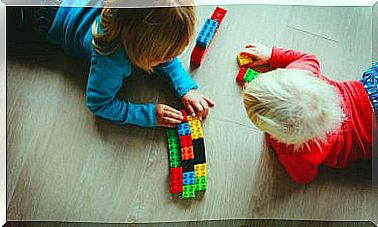What Is Intercultural Education?

To understand what intercultural education is, we must first remember what culture is. As defined by cultural anthropology, and more specifically Edward B. Tylor (1871), culture is “ that complex whole that includes knowledge, beliefs, art, morals, law, customs and any other habits and capabilities acquired by man as a member of society ” .
Culture is learned through the process of socialization, with which each person will learn what a society and his closest family environment teach him in a specific historical time. And their behaviors, ways of interpreting reality and their values will depend on their personal circumstances and their own social and cultural context.
A multicultural society
Historically, and today, peoples and nations have been formed from immigration and the emigration of people. This has allowed today that we live and be part of a multicultural reality, that is, that we are always in contact with people with different cultures and languages, and with whom we must coexist, integrate and respect each other.
There are different positions vis-à-vis the multicultural situation, that is, vis-à-vis cultures and customs that are not ours. Like, for example, adopting an ethnocentric attitude that disposes us to analyze other cultures from our own points of view. Which can bring about a certain difficulty to put ourselves in the place of others, and even feel better and superior than them.

Another attitude may be to adopt a certain cultural relativism by showing ourselves more tolerant of other cultures, groups and cultural manifestations. But this attitude, although it is based on respect for difference, is not raised as a basis for the possibility of contact and conscious exchange between different cultural groups, as conceived by an intercultural position.
An intercultural attitude
Interculturality, unlike other attitudes, implies going one step further with respect to the encounter between different cultural groups. It is not only about coexisting peacefully in the same social and temporal space, but also about advocating interaction and exchange as a possibility of growth and development, both socially and individually.
With which, we can define interculturality as a process of communication and interaction between people and groups with specific cultural identities. Interculturality is a means to promote communication between people and always on an equal footing.
An intercultural education
So, an intercultural education is about a holistic approach with an inclusive character, aimed at developing attitudes of respect and tolerance for what is different. But, in turn, also aimed at highlighting the need to conceive diversity as a form of personal and collective enrichment.
An intercultural education is an education for all in which the ideas and actions of one person or cultural group are not allowed to be above the other. In this sense, it is an education that tries to modify practices, fostering and favoring dialogue, agreement and affective participation of each one regarding other people’s realities.

Basic principles of an intercultural education
An intercultural education should be organized thinking and rethinking certain concepts such as racism, discrimination, exclusion, and on the basis of the following principles that define it:
- Promote respect for different cultures and customs.
- Encourage contact between social groups with diverse specific identities.
- Perceive diversity as a value and not as a deficiency.
- Increase educational equity and equal opportunities.
- Encourage and promote communication, dialogue and coexistence.
- Pursuing integration as a way of maintaining specific cultural identities while coexisting with different ones.
Definitely…
An intercultural education implies a whole reorganization of policies, institutions, teacher training, school curriculum and educational practices. All this is necessary to achieve the goal proposed by an intercultural education, which is not about getting us to learn the culture of the other, but rather that we learn from contact and encounter with him.










